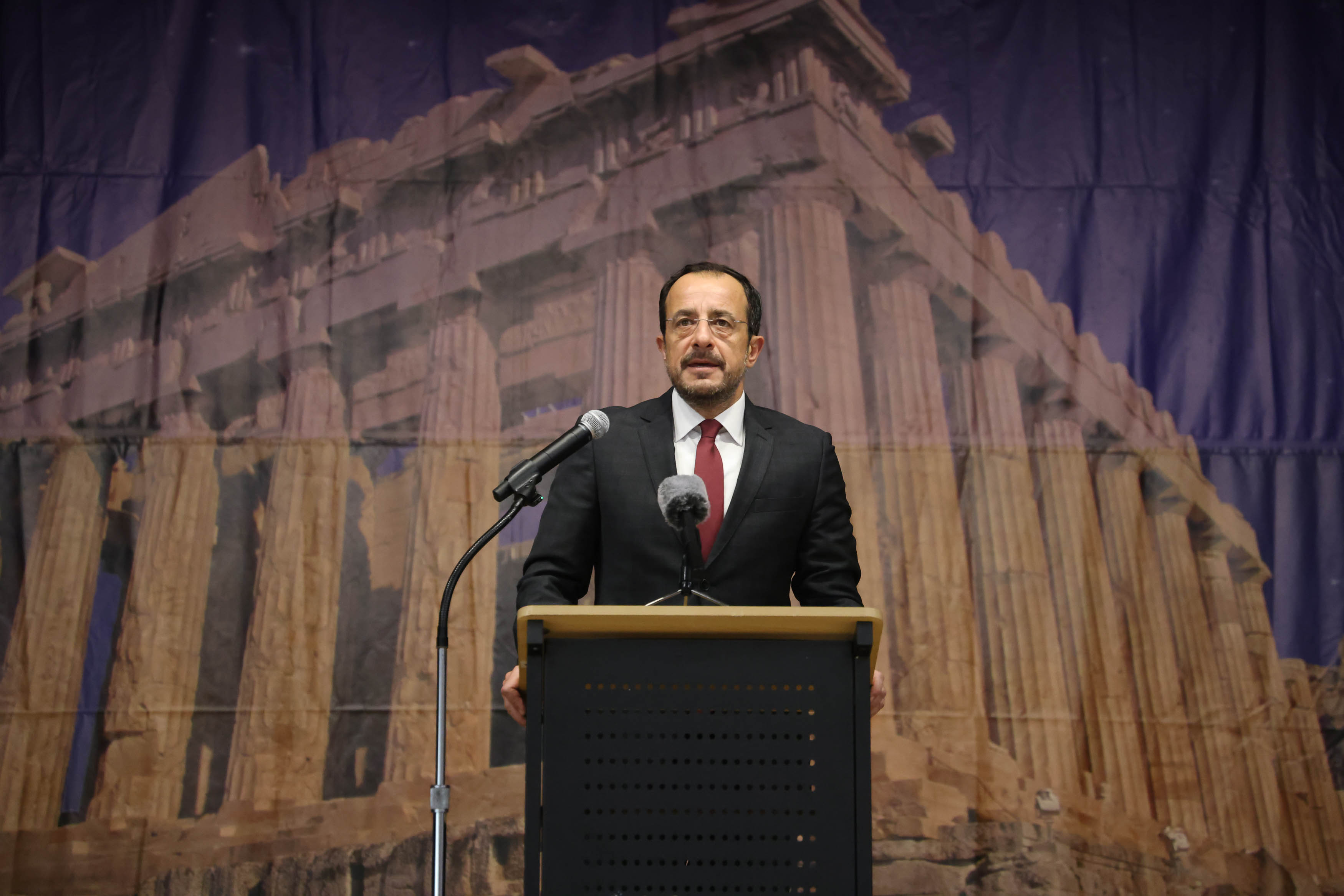Cyprus is more of a solution than it is a problem, President Nikos Christodoulides said in a speech at Rutgers University in the United States state of New Jersey.
He was in New Jersey to attend a memorial for Greek-American businessman Nikos Mouyiaris before heading to neighbouring New York for the United Nations’ general assembly this week and stressed that the island is “both a physical and cultural bridge between continents”.
He added that Cyprus is both a “driver of regional cooperation” and a “contributor to stability in a region of great geopolitical importance”.
“In an era marked by war, terrorism, and instability, Cyprus offers unique opportunities to foster peace, cooperation and economic integration,” he said, before stressing that the island “will no longer be a hostage to history or a hostage of geography”.
“On the contrary. Our geography is an advantage and is being utilised as such in planning and exercising our foreign policy. At the crossroads of Europe, Asia, and Africa, Cyprus brings regions, countries, and faiths together in the name of collaboration rather than conflict,” he said.
He added that the island is “not destined to be a civilisational fault line”, but is instead a member state of the European Union, while grouped in with the UN’s Asia Pacific states, and simultaneously a member of the Commonwealth, while also being “a state with longstanding diplomatic and cultural ties with [the] countries of our region”.
On this matter, he stressed that Cyprus is “more than just a passage point”, and that to be effective as “a gateway linking the region with the EU and the US”, it must “rest on solid ground”.
“This is why Cyprus has also chosen to be an anchor of stability and security. Two roles that are inseparable. Our value as a gateway derives from the confidence and trust that partners – and I would stress here, most importantly, the United States – place in us as a stable, reliable, predictable and secure partner,” he said.
To this end, he made reference to the Amalthea humanitarian aid corridor to Gaza, as well as the ‘Estia’ plan, wherein EU and third country nationals use Cyprus as a hub while departing from regional conflict zones towards their countries of origin.
“The world is changing, and Cyprus has been, and will continue to be, at the forefront of that change in order to promote stability and cooperation,” he said.
One aspect of this cooperation he mentioned was the discovery of natural gas under the seabed off the coast of Cyprus and of its neighbours.
These discoveries, he said, were “the trigger points which have brought regional actors together”, helping to bring “economic diversification” to the region and opening opportunities for cooperation with “economic giants like Exxon, Total, Chevron, and Eni”.
“Energy discoveries literally fuelled Washington’s change of perception of Cyprus. It was the first time we were considered a solution – a solution to energy reliance on adversarial regimes, a solution to energy scarcity which led to unrest in the Middle East,” he said.
He added that the discoveries “also made it possible for the US and Cyprus to truly delve into so many other areas that had the potential for expanded strategic bilateral cooperation”.
With this in mind, he said that in recent years, “we have been able to celebrate significant milestones in the relationship between Washington and Nicosia”, with these milestones culminating in Cyprus being authorised to buy military hardware directly from the US government after joining three programmes run by the country’s department of defence at the beginning of this year.
He then closed his speech by saying he celebrates the fact that historians Michael Rubin and Steven cook have written “on our issues”, and the fact that the “pro-Israel community advocates for Cyprus”.






Click here to change your cookie preferences